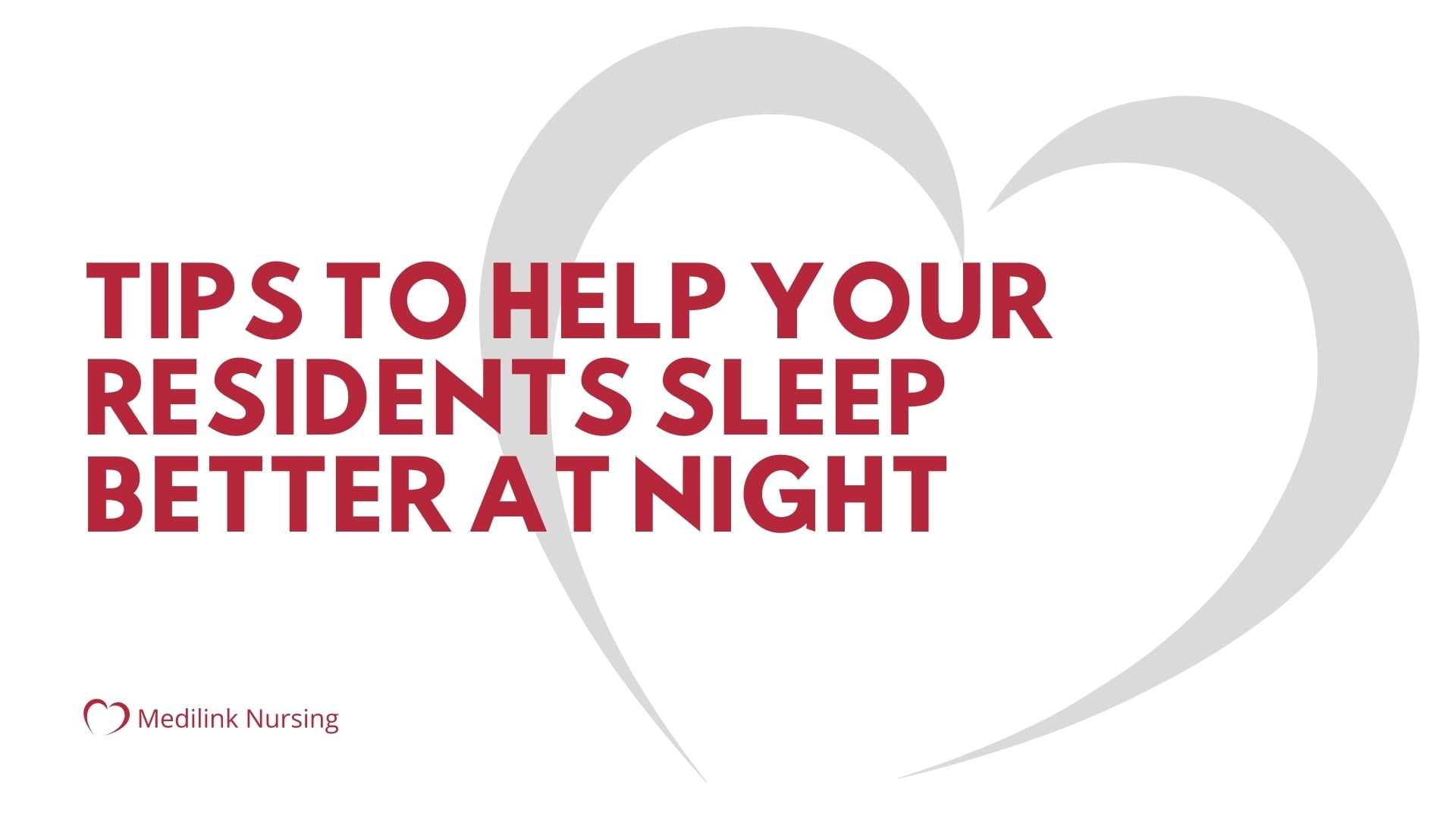Tips To Help Your Residents Sleep Better At Night
As we get older, it’s not uncommon for us to have more problems with sleeping, especially with everything that’s going on in the world.
Whilst some may sleep more than we should, others often find it difficult to greet the sandman at bedtime.
In this blog, we will discuss some tips and tricks to help your residents get off to sleep easier on a night if they’re struggling.
In fact, you may even find some tips for yourself here if you struggle too!
Let Light Dictate Your Sleep!
During the daytime, we are much more awake than at night, and there’s a reason for it!
Our body produces a natural hormone called “Melatonin” that is controlled by the amount of light your body receives. At night, your brain releases more of it, which is what makes you tired! You’ve probably guessed, but in the daytime, you produce less of it, meaning you feel more awake.
It’s important that during the day, your residents are exposed to plenty of light, so the brain definitely knows when it’s action time. As with most things in life, the more natural light the better – curtains shouldn’t be closed during the day!
Then, when it comes to bedtime, make sure that the residents’ rooms can be made completely dark (if they want it), and that any corridor lights do not cast too much, if any, light into the rooms.
Suggest Cut Downs On Caffeine
If you notice someone is having trouble sleeping, it’s always a good idea to see how much caffeine they’re having.
No-one wants to turn down a cup of tea or coffee, but if you’re struggling to sleep, it may be a good idea.
Caffeine can impact your body for up to (and sometimes over, depending on your intake) 12 hours. This means if you have a cuppa at 3 pm, you could be feeling the effects well into the night.
Decaffeinated options are a good alternative. Get the same great taste, but also a good night’s sleep. Win-win!

Associate The Bed With Sleeping
It’s not uncommon to just hang around in bed for a few hours, reading a book or watching TV. But when you spend more time awake in bed, your body starts to associate it with a place to be awake in, which can cause sleeping issues.
Whilst you shouldn’t force your residents to get out of bed, try to encourage them to read or watch TV on a sofa or chair instead – just make sure they’re really comfortable!
Get Regular Exercise
If you’re sitting around all day, you won’t use much energy.
Even if it’s only a 10-minute shake up, or a walk outside, a bit of exercise will definitely help you sleep at night. Of course, as well as sleeping, exercise is a great way to keep the body active and healthy – just don’t try too hard to touch your toes!
Regular Bedtime and Wake Up Times
Routines are key to many good things in life, and sleep is no different!
Encouraging residents to go to bed, and wake up, around the same time each day can help their body clock get into a regular routine.
Assuming you get enough sleep on a night, your body will act as a natural alarm clock and wake you up. If not, waking up at the same time every day will also kick your body clock into action, making it much easier to wake up when you want, and get to sleep at night.
Being able to naturally wake up is a much better start to the day than having to have a battle with the snooze button on an alarm… 10 more minutes, that’s all I need… I swear…

Keep Busy During The Day
As well as getting your regular exercise, it’s also important to keep the mind busy during the day. It can be easy to spend the whole day watching TV, especially if you’re into a box set, but when it comes to bedtime, your brain won’t thank you!
Whether it be helping out with small tasks around the home, doing puzzles, arts, or even just a combination of little things, they will all help keep the mind active.
Then after a busy day, not only will residents feel like they’ve accomplished something, they’ll have a better chance of a great night’s sleep.
To Wrap-Up
So, it turns out there are a fair few ways to try and help get to sleep at night, but there are plenty more!
However, if residents are still continuing to struggle to sleep, it may be worth seeking some professional advice, who may just have the perfect solution.
If you’ve got any tips or tricks, we’d love to hear them in the comments below!
Further Reading:
If you found this page useful, you might like to read our posts on:
Ideas to keep your Residents engaged
The importance of maintaining Residents’ independence
How using Agency Staff can benefit your Home

